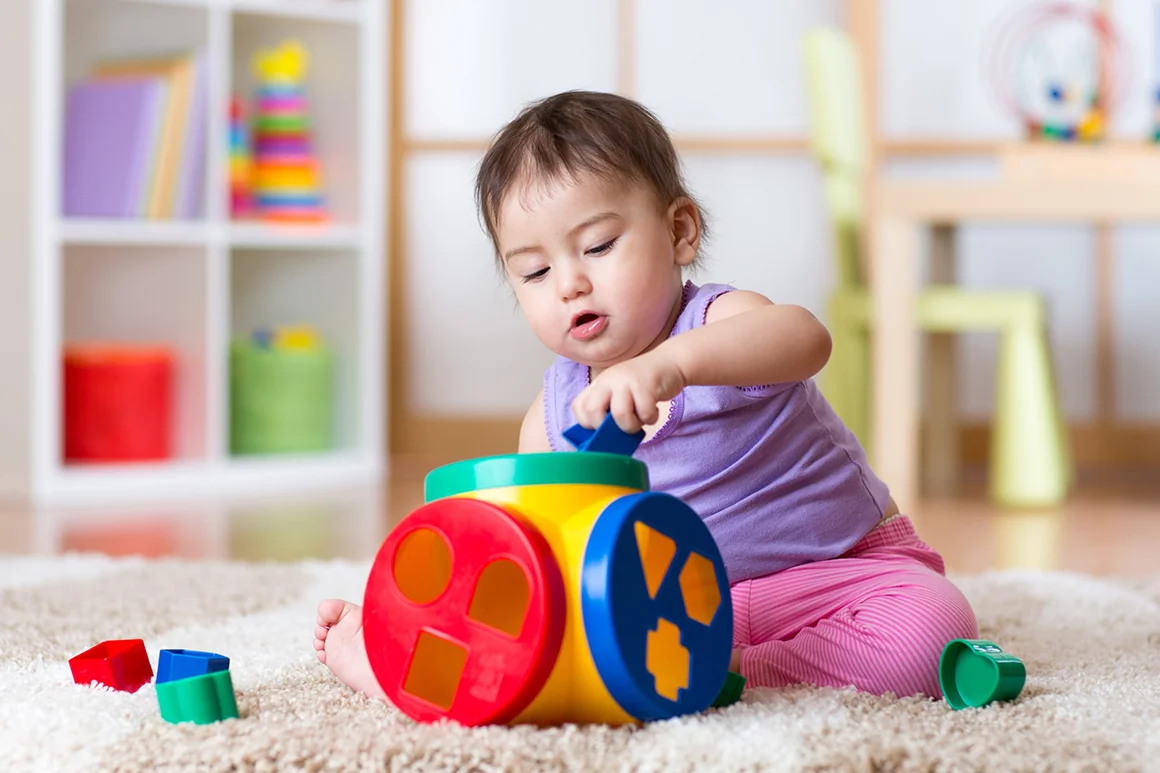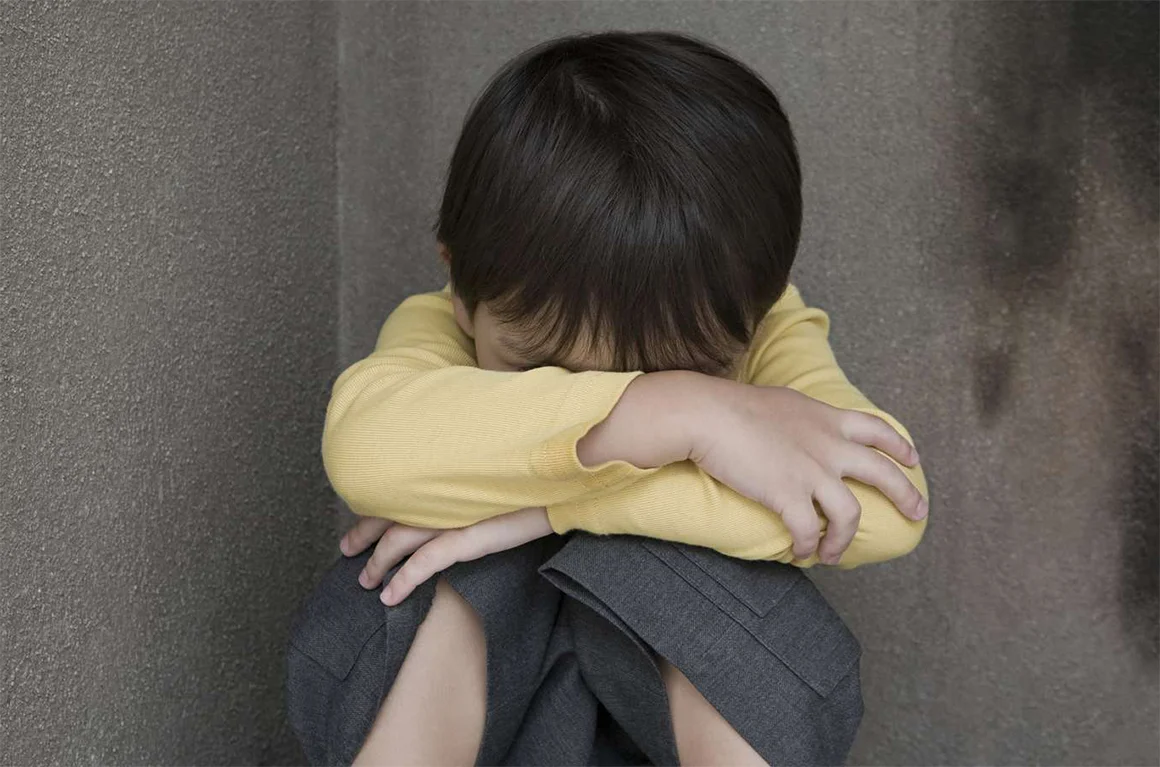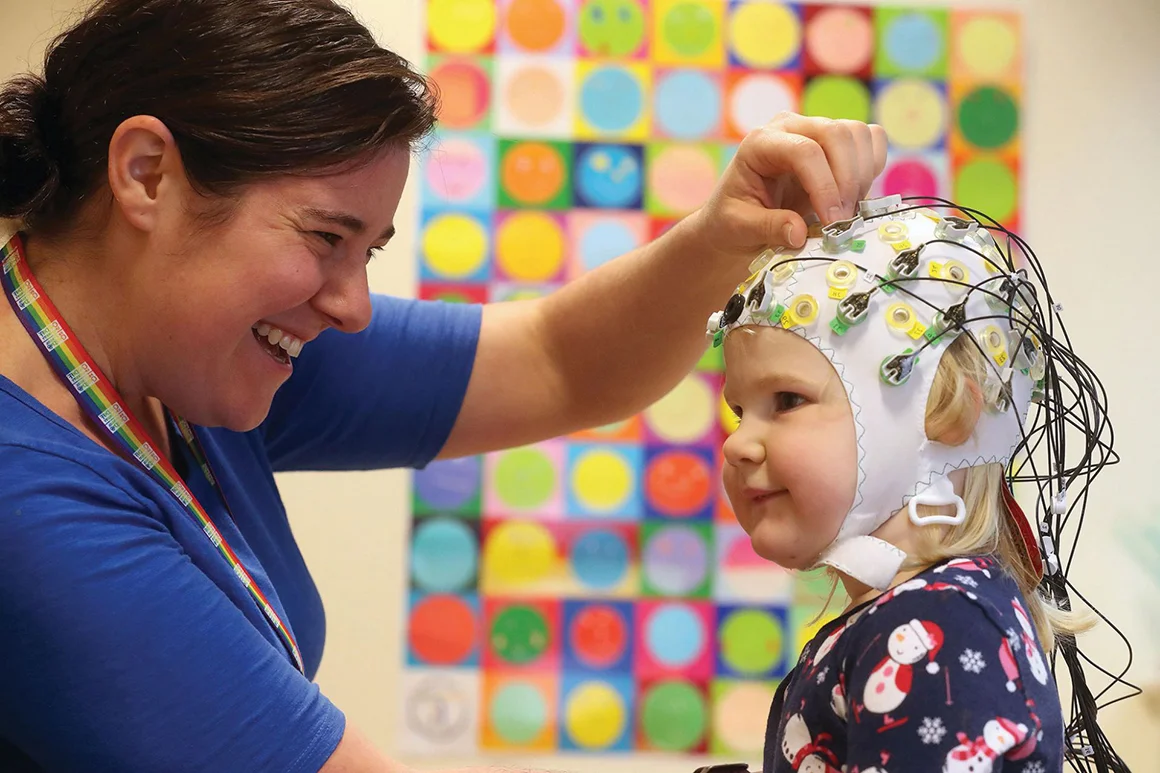The early age in psychology refers to the period of a child’s life that begins at birth and ends at around 6-7 years old. This time is characterized by active physical, emotional, social, and cognitive development. Early age is divided into several stages, each with its own features and developmental patterns.
In psychology, the term “early age” typically refers to the first years of a child’s life, from birth until they reach school age. However, the division into age stages can vary depending on the specific theory or research approach. Here are some commonly accepted boundaries of early age:
- Newborn Period (0-1 month) – a time of adaptation to the outside world, the formation of primary reflexes, and emotional reactions.
- Infant Period (1-12 months) – the child begins to actively explore the surrounding world, develops motor skills, speech, cognitive processes, and establishes initial social connections.
- Toddler Period (1-3 years) – rapid development of speech, thinking, and imagination occurs. The child begins to show independence, and the concept of self is formed.
- Preschool Age (3-6/7 years) – enhancement of social adaptation, active learning of social roles and norms, development of imagination and creative activity, and preparation for school education.
Early age in psychology is studied to identify developmental patterns, determine the influence of various factors on personality formation and psychological processes, and develop methods and approaches aimed at supporting the development of children at this stage.

Why is early age in psychology so interesting to researchers?
The study of early age in psychology is of immense importance because this period forms the foundation for personality development and the formation of essential psychological processes and qualities. During this time, a child undergoes active physical, emotional, social, and cognitive development, which influences their future adaptation and success in all areas of life.
Here are some key factors that interest psychologists studying early age psychology:
- Foundation for Personality Development: Early age is a critical time for the formation of basic character traits, attitudes, and worldviews. Interaction with the surrounding world and people shapes a child’s self-image and their ability to establish relationships with others.
- Development of Psychological Processes: During early age, cognitive processes such as perception, attention, memory, thinking, and speech develop rapidly. Understanding the characteristics and patterns of these processes helps in forming effective approaches to education and upbringing.
- Formation of Social Skills and Emotional Intelligence: Early age is a critical period for developing social skills and emotional intelligence. Interaction with others and learning social roles are fundamental to a child’s successful adaptation in society.
- Prevention and Correction of Problems: Studying early age psychology allows for the identification and prevention of potential emotional, social, and cognitive development issues. Early diagnosis and corrective measures can significantly improve the quality of life for the child and their family.
- Understanding the Influence of Parents and Family: Parents and family play a key role in a child’s psychological development at an early stage. Research in this area helps determine optimal parenting and educational strategies, as well as ways to support and stimulate the child’s development in various aspects.
- Assessment and Development of Educational Methods: Studying early age psychology enables the assessment and development of methods and approaches appropriate to the age-specific characteristics of development. This contributes to the creation of effective educational programs and environments that support the development of children in their early years.
- Understanding Individual Differences: Early age is a time when individual differences in the pace and nature of development become evident. Studying early age psychology helps take these differences into account and adapt approaches to the upbringing and education of each child.
Overall, the study of early age in psychology is of great significance because this period forms the foundation for personality development and essential psychological processes. Understanding the developmental patterns during this period and the influence of various factors allows for the optimization of upbringing, education, and support for the child, promoting successful adaptation and further development.

Psychological Aspects of Development in Early Age
Early age in psychology covers a critical period in a person’s life during which rapid brain development and the formation of fundamental skills, such as cognitive, emotional, social, and physical aspects of development, occur. During this period, children begin to master basic functions, such as perception, attention, memory, thinking, speech, and emotions. These processes are essential for ensuring successful learning and socialization of the child in later stages of development.
Social and emotional development in early age also plays a key role in personality formation and establishing relationships with others. A child learns to express and understand emotions, develops communication skills, and establishes connections with parents, peers, and other members of society. The importance of early age in psychology is related to the fact that the foundations of mental health are laid during this stage, as well as the abilities and skills that will accompany a person throughout life.
Emotional Development
Emotional development is one of the key aspects of psychological development, especially in early age. During this period, children learn to recognize, express, and regulate their feelings, as well as interact with the emotions of others. The main components of emotional development include the formation of affective bonds, the development of emotional intelligence, self-regulation, and empathy. Healthy emotional development is the basis for successful social interactions, stable relationships, and mental well-being.
The importance of emotional development lies in its influence on a child’s ability to adapt in society, establish and maintain relationships, and cope with stress and conflicts. Parents, caregivers, and educators must pay special attention to maintaining a healthy emotional environment for children, providing them with opportunities for safe expression of feelings, learning emotional skills, and developing independence. As a result, emotional development contributes to a child’s self-confidence, adequate self-esteem, and psychological resilience.
Formation of Affective Bonds
Affective bonds are emotional connections between a child and their caregivers, formed through interaction and serving as the basis for trusting relationships. Early affective bonds play an important role in a child’s emotional development, as they determine the child’s ability to form attachments and establish close relationships with others. Healthy affective bonds provide the child with a sense of security and stability, promoting further development and adaptation in society.
Development of Emotional Intelligence
Emotional intelligence is the ability to understand, manage, and express one’s own emotions and the emotions of others. The development of emotional intelligence in early age involves teaching the child ways to identify, express, and control their feelings, as well as understand and consider the emotions of others. This is a crucial aspect of emotional development, as it affects the child’s ability for self-regulation, socialization, cooperation, and empathy. Developed emotional intelligence helps the child to successfully adapt in society, establish and maintain relationships, and handle conflicts and stress.
Social Development
Social development is another important aspect of psychological development in early age, involving the process of forming skills and abilities necessary for effective interaction with others. At this stage, children learn to perceive and understand social signals, form friendships, cooperate, and resolve conflicts. Key components of social development include communication, social cognition, the development of norms and values, and the formation of social identity.
The importance of social development lies in its role in determining the child’s success in integrating into society, forming and maintaining interpersonal relationships, and developing social skills and competencies. Awareness of social roles, the ability to self-regulate, and adaptation to changing social conditions are also results of healthy social development. Parents, caregivers, and educators play a key role in stimulating the child’s social development by providing support, feedback, and opportunities for socialization in various contexts.
Development of Communication and Interaction
The development of communication and interaction is a key component of a child’s social development. In early age, children begin to learn to recognize and use verbal and nonverbal signals to express their thoughts, feelings, and needs, and to interact with others. Communication skills develop through learning and practice, as well as interactions with parents, peers, and other significant individuals in the child’s life. Developed communication skills help the child to successfully adapt in society, form friendships, and cooperate with others.
Formation of Social Skills
The formation of social skills involves the development of the child’s abilities for cooperation, joint play, forming and maintaining friendships, and resolving conflicts and problems. Social skills also include understanding social norms, rules, and expectations, as well as the ability to adapt to different social situations. Parents, caregivers, and educators play an important role in the development of social skills in children, providing them with opportunities for social learning, support, and interaction with various peer groups. The formation of social skills in early age contributes to the child’s successful adaptation in society and enhances their psychological well-being.
Cognitive Development
Cognitive development refers to the process of forming and developing mental processes such as perception, attention, memory, thinking, speech, and problem-solving. In early age, children actively explore the world around them, learn to understand and process information, and develop skills in analysis and synthesis. Cognitive development also includes the development of executive functions, which help children control their behavior, make decisions, and achieve goals.
The importance of cognitive development lies in its role as the foundation for successful learning and adaptation in society throughout life. Developed cognitive abilities enable the child to more easily acquire new knowledge, develop critical thinking, and adopt a problem-oriented approach. Parents, caregivers, and educators play a crucial role in stimulating the cognitive development of children by providing them with diverse opportunities for learning, practice, and interaction with their environment.
Development of Perception and Cognitive Processes
Perception and cognitive processes such as attention, memory, and information processing are core components of cognitive development. In early age, children actively explore the world around them and learn to establish connections between objects, events, and phenomena. The development of perception and cognitive processes allows the child to successfully adapt to their environment and forms the basis for further learning and cognition.
Formation of Speech and Thinking
Speech and thinking are closely linked to cognitive development and play a vital role in the processes of cognition and communication. In early age, children actively develop their speech, learning to understand and use language to express their thoughts, feelings, and needs. The development of thinking helps the child to master various types of mental activities such as logical, abstract, and critical thinking. The formation of speech and thinking in early age contributes to the child’s successful socialization, learning, and intellectual development.

Theories of psychological development in early childhood
Psychological development in early childhood encompasses a range of processes and changes that occur in the emotional, social, and cognitive spheres of a child. Various theories and approaches to studying this development highlight children’s ability to adapt and assimilate new information, form relationships and social connections, and develop thinking, speech, and cognitive skills. Many theories agree that children go through several stages in early childhood, each characterized by specific features of psychological development.
Modern theories of psychological development also emphasize the importance of the interaction between genetic and environmental factors in shaping a child’s psychological characteristics. This implies that the child is not a passive recipient of information but actively participates in their own development through interaction with their environment.
Jean Piaget: cognitive development
Jean Piaget, a Swiss psychologist, is renowned for his research on children’s cognitive development. He developed a theory of cognitive development that serves as the foundation for understanding the processes underlying children’s learning and cognition. Piaget proposed that children go through four main stages of development, each characterized by unique changes in cognitive processes.
- Sensorimotor Stage (0-2 years): At this stage, children interact with the world through their senses and movements. They learn to coordinate their physical actions with perception and begin to form basic concepts about objects and phenomena.
- Preoperational Stage (2-7 years): During this stage, children start using symbols, such as language and imagery, to express their thoughts and feelings. They are not yet capable of logical thinking and have a limited understanding of cause-and-effect relationships.
- Concrete Operational Stage (7-11 years): At this stage, children begin to apply logical thinking to concrete situations and tasks. They learn to understand the principles of conservation, classification, and seriation.
- Formal Operational Stage (11 years and older): In this stage, children develop the ability for abstract and hypothetical thinking. They can systematically solve problems and understand complex concepts such as probability and proportion.
Piaget believed that the primary driver of cognitive development is the quest for equilibrium between assimilation (incorporating new information into existing knowledge) and accommodation (altering knowledge to adapt to new information).
Lev Vygotsky: sociocultural approach
Lev Vygotsky, a Russian psychologist, made significant contributions to the study of child development by proposing the sociocultural approach. His theory emphasizes the importance of social and cultural context in the psychological development of children. Unlike Piaget, who focused on individual cognitive processes, Vygotsky argued that development occurs through interactions between children and the people and cultural tools around them, such as language.
A central concept in Vygotsky’s theory is the zone of proximal development (ZPD). The ZPD is defined as the difference between what a child can do independently and what they can do with the help of an adult or more experienced peer. An essential aspect of the ZPD is that learning and development happen through cooperation when adults or peers provide support and guidance, helping children overcome difficulties and develop new skills.
Vygotsky also emphasized the role of language and communication in psychological development. He believed that language is a crucial tool through which children communicate with their social environment and form their understanding of the world. As children learn to use language for communication, they also develop inner speech, or thought language, which is used for self-regulation and problem-solving.
Vygotsky’s theory has significantly influenced education and psychology by highlighting the importance of social and cultural context in child development and the active role of adults in this process.
Erik Erikson: psychosocial development
Erik Erikson, a German-American psychologist and psychoanalyst, formulated the theory of psychosocial development. Unlike Sigmund Freud’s psychosexual theory of development, Erikson focused on the interplay between the individual and society, as well as the development of personality throughout life.
Erikson’s theory of psychosocial development consists of eight stages, each characterized by a specific psychosocial crisis that needs resolution. These crises arise from the interaction of biological, psychological, and social factors and changes in the environment. Successfully resolving each crisis leads to the development of a particular psychosocial virtue or strength.
In early childhood, according to Erikson’s theory, children go through three stages:
- Trust vs. Mistrust (0-1 year): During this period, the child learns to trust or mistrust their caregivers depending on their ability to meet the child’s basic needs.
- Autonomy vs. Shame and Doubt (1-3 years): In this stage, the child begins to form a sense of independence and control over their behavior. Successfully resolving this crisis helps develop a sense of autonomy.
- Initiative vs. Guilt (3-5 years): During this stage, the child starts to take initiative and explore their abilities. Successfully resolving the crisis leads to the development of a sense of initiative.
It is important to note that each stage of development involves specific tasks and challenges, and successfully resolving them affects further psychosocial development.
John Bowlby: attachment theory
John Bowlby, a British psychiatrist and psychoanalyst, developed attachment theory. Attachment theory explores the emotional bonds between individuals, especially between children and their parents or caregivers. The central idea of the theory is that healthy and stable emotional bonds in early childhood are critically important for developing healthy psychological functioning later in life.
Bowlby proposed four main characteristics of attachment:
- Protest: Children show protest and negative emotions when their parents or caregivers are absent or leave.
- Despair: If the absence continues, children may enter a stage of despair, displaying symptoms of depression and passivity.
- Detachment: Eventually, children may develop indifference to their parent or caregiver and become more self-reliant, but this can lead to problems in future relationships.
- Reunion: Children seek to restore the bond with their parents or caregivers upon their return.
Additionally, Bowlby and his colleagues, including Mary Ainsworth, identified three main attachment styles: secure, avoidant, and anxious/ambivalent. These attachment styles in childhood often influence the types of relationships people form in adulthood.
John Bowlby’s attachment theory has significantly influenced the understanding of the importance of early relationships in child development and the practice of psychotherapy, parenting, and childcare.

The importance of parental support and interaction in early childhood
Parental support and interaction are crucial for the psychological, emotional, social, and cognitive development of a child. In early childhood, children need love, care, and stability that only their caregivers can provide. Parents play a key role in creating a safe and supportive environment that fosters trust, autonomy, and self-confidence in young children. Quality interaction with parents helps children establish strong emotional bonds, which are the foundation for healthy interpersonal relationships throughout their lives.
Beyond emotional support, parents influence their children’s cognitive and social development through teaching, communication, and play interactions. Parents who provide their children with a variety of stimulating materials, tasks, and learning opportunities contribute to the development of cognitive skills and intellectual abilities. Interaction with parents also teaches children norms, rules, and values, which is an essential aspect of socialization and the formation of social skills. Overall, parental support and interaction are integral to the healthy development of a child at all stages of life.
The role of parents in emotional and social development
Parents play a critical role in the emotional and social development of children, as they provide the foundation for forming healthy interpersonal relationships and adapting to society.
- Providing Emotional Security: Parents should create a loving, caring, and supportive environment that promotes the development of trust and attachment in children. Such an atmosphere helps children feel safe and confident in the world around them.
- Developing Emotional Regulation: Parents play a key role in teaching children skills for emotional regulation, helping them understand, express, and manage their emotions. They can demonstrate their own healthy ways of managing emotions and support children in learning these skills.
- Forming Social Skills: Parents teach children the basics of communication and interaction with others. They help children learn social norms, rules of behavior, and values, which are important for socialization and the formation of social skills.
- Creating Opportunities for Social Interaction: Parents should provide their children with opportunities for social interaction with other children and adults. Participation in various group activities, such as playgroups, sports teams, or clubs, promotes the development of social skills and the establishment of friendships.
Overall, parents play a defining role in the emotional and social development of their children, laying the foundation for their future psychological well-being and successful adaptation to society.
Developing structure and routine
Creating structure and routine for children is an important aspect of parenting, as it helps them navigate time, develop self-organization skills, and ensure stability and predictability in their lives.
- Establishing Rituals: Developing a daily routine includes establishing daily rituals such as wake-up time, meals, learning, play, rest, and bedtime. Regularly following these rituals helps children get used to a certain structure and understand what to expect each day.
- Flexibility and Adaptation: It is important to approach structure and routine with consideration for the individual characteristics and age-related needs of the child. Parents should be ready to adapt the routine if the child’s needs change or if special circumstances arise, such as illness or travel.
- Including Learning and Entertainment: The routine should include time for educational activities and entertainment. Learning can take the form of homework, reading, puzzles, or experiments. Entertainment can include games, creative activities, outdoor play, and sports.
- Considering the Child’s Need for Rest: Parents should take into account that every child needs time for rest and relaxation. It is important to include periods for breaks and rest in the routine, allowing children to regain their strength and maintain interest in learning and play.
Developing a structured daily routine helps parents provide optimal conditions for their children’s development, as well as maintain a healthy balance between learning, play, and rest.
Supporting and stimulating cognitive development
Supporting and stimulating a child’s cognitive development are key factors in shaping their intellectual potential and curiosity. Parents can actively participate in this process by providing a variety of educational opportunities and creating a stimulating environment for learning.
- Providing Diverse Educational Materials: Parents can offer children various educational materials, such as books, toys, puzzles, and multimedia resources. This helps develop different areas of cognition, such as language, math, science, and creative skills.
- Active Participation in Learning: Parents should show active interest in their children’s learning, ask questions, discuss interesting topics, and participate in play and educational interactions. This helps children develop critical thinking, problem-solving, and independent decision-making skills.
- Encouraging Curiosity: Parents should support and stimulate a child’s curiosity by encouraging their interest in the world and desire to learn new things. It is important to pay attention to children’s questions, offer various sources of information, and discuss their discoveries and observations.
- Creating a Stimulating Educational Environment: Parents should strive to create a home environment that supports a child’s cognitive development. This includes organizing a special place for studying and learning, providing access to educational resources, and ensuring a quiet and calm space for concentration and independent work.
Overall, parents play an important role in supporting and stimulating their children’s cognitive development by providing diverse educational opportunities and creating an appropriate environment for learning and developing intellectual abilities. To ensure optimal development, parents should aim for active participation in their children’s education, provide access to quality educational resources and materials, encourage curiosity, and create a favorable atmosphere for learning and development.
By following these principles, parents will help their children develop strong cognitive skills and a foundation of knowledge that will enable them to successfully tackle future educational and professional challenges.
Fostering a positive self-Image
Fostering a positive self-image in a child plays an important role in their psychological development and well-being. Parents can significantly contribute to this process by taking the following steps:
- Support and Recognition of Achievements: Parents should encourage their children’s successes and acknowledge their achievements, regardless of their scale. This helps children develop confidence in their abilities and self-belief.
- Respect and Acceptance: Parents should respect and accept their children as they are, without trying to change their personality or impose their own ideas. This helps children feel loved and valued.
- Teaching Self-Evaluation and Self-Analysis: Parents can help children learn to assess their achievements and shortcomings adequately, developing self-analysis and self-control skills. This allows children to become independent and reasonable in their judgments about themselves.
- Supporting in Overcoming Difficulties: Parents should be ready to help children cope with difficulties and failures, teaching them to find solutions to problems and view challenges as opportunities for growth and development.
- Developing Self-Improvement Skills: Parents can help children develop self-improvement skills by showing them how to set goals, plan time, and organize tasks. This helps children realize their ability to grow and progress.
- Maintaining a Positive Family Atmosphere: Parents should strive to create a home environment where children feel comfortable and can freely express their thoughts and feelings. A positive family atmosphere promotes the formation of a positive self-image in the child.
By following these principles, parents can help their children develop a positive self-image, which is an important factor in psychological well-being and successful development.

Possible psychological problems and disorders in early childhood
In early childhood, children may encounter various psychological problems and disorders. Some of these issues are related to learning, social skills, behavior, and emotional well-being. It is important to consider that early childhood is a critical period for brain development, and any difficulties or disorders during this time can have long-term consequences for the child.
To prevent or promptly identify potential psychological problems, parents and professionals are advised to closely monitor children’s development and pay attention to any deviations from the norm. If difficulties are detected, it is necessary to seek timely consultation from a psychologist or other specialists to receive professional help and recommendations.
Emotional and behavioral problems
Emotional and behavioral problems in children can manifest in different forms and vary in severity. Here are some common emotional and behavioral issues:
- Anxiety Disorders: Children may experience anxiety for various reasons, such as parental divorce, fear of new situations, or concerns about their health.
- Depression: Although depression is more commonly associated with adults, children can also suffer from this disorder. It may present as sadness, loss of interest in activities, changes in appetite and sleep, and decreased school performance.
- Aggressive Behavior: Children may exhibit aggression for various reasons, such as a lack of attention, emotional problems, or difficulties in interacting with others.
- Socialization Problems: Some children struggle with communication and adaptation in social situations, leading to isolation and conflicts with others.
- Attachment Disorders: Children who have difficulty forming attachments to their parents or caregivers may suffer from behavioral and emotional problems, such as anxiety, depression, or aggression.
To address emotional and behavioral problems, it is important to seek timely help from a psychologist or other specialists. Professional support can help children cope with difficulties and ensure healthy psychological development.
Speech delay
Speech delay is a disorder where children face difficulties in acquiring speech and language skills. This can manifest as slow vocabulary development, problems with sentence formation, or incorrect articulation of sounds. Speech delay can be associated with various causes, such as hearing problems, nervous system disorders, genetic factors, or insufficient stimulation of speech development by the environment.
It is crucial to detect and address speech delay early to provide optimal conditions for the child’s further progress. Depending on the cause and severity of the delay, various approaches may be recommended, including working with speech therapists, audiologists, or psychologists. Parents can also actively participate in stimulating their child’s speech development by providing opportunities for communication and practice in everyday life.
Socialization difficulties
Socialization difficulties arise when children experience problems with adaptation and communication in social situations. These difficulties can lead to conflicts with others, isolation, and low self-esteem. Here are some factors that often contribute to the emergence of socialization difficulties:
- Underdeveloped Social Skills: Some children may have poorly developed social skills, making it difficult for them to interact with others and understand social norms.
- Developmental Disorders: Autism spectrum disorders, ADHD, and other developmental disorders can affect children’s ability to adapt in social situations.
- Emotional Problems: Anxiety, depression, or low self-esteem can hinder communication and the formation of friendships.
- Family Factors: Being raised in a family with limited social interaction or in situations where the child does not receive adequate support can lead to socialization difficulties.
To overcome socialization difficulties, it is important to provide support to the child at all levels: in the family, school, and community. Working with psychologists, social workers, or special education specialists can help children develop social skills, improve self-esteem, and overcome social barriers. Parents also play a crucial role by providing support, understanding, and stimulating social interactions for their children.

Professional Help and Support for Young Children
Professional help and support are invaluable for children facing various psychological issues. Psychologists, social workers, speech therapists, and special education specialists can assist in diagnosis, developing individual treatment plans, and supporting children and their families in overcoming difficulties.
Parents also play a crucial role in ensuring their children have access to professional help and support. They should collaborate with experts to better understand their child’s needs, actively participate in the development and implementation of the treatment plan, and provide additional support and stimulation in daily life. Timely professional help and active parental involvement can significantly improve the quality of life for children and help them successfully cope with emerging challenges.
The Role of Psychologists and Educators in Early Childhood
The role of psychologists and educators in early childhood is vital and multifaceted, as these professionals contribute to the optimal development of children at various levels.
Psychologists in early childhood conduct diagnostic assessments to determine children’s needs and identify possible psychological problems or developmental disorders. They also provide support and consultations for parents, helping them understand how to better stimulate their children’s development. When problems are identified, psychologists develop individual treatment plans and collaborate with other specialists, such as speech therapists, to provide comprehensive assistance.
Educators, such as kindergarten teachers and elementary school teachers, play a key role in providing quality education and developing children’s social skills in early childhood. They create a favorable and stimulating educational environment in which children learn and develop.
Educators can also collaborate with psychologists and parents to provide individualized support to children with special needs and overcome potential obstacles in learning and development.
Prevention and Correction of Psychological Problems in Early Childhood
The prevention and correction of psychological problems play a crucial role in ensuring the healthy psychological development of children and adolescents. Early prevention and timely correction can reduce the risk of future problems and improve the quality of life.
Prevention of psychological problems includes a set of measures aimed at preventing their occurrence. This includes:
- Providing a supportive and safe family environment.
- Instilling stress management skills and developing emotional intelligence.
- Socialization and teaching social skills.
- Engaging in activities that promote self-esteem and self-affirmation.
Correction of psychological problems is the process of restoring and improving the psychological well-being of children facing difficulties. It includes:
- Individual or group psychotherapy aimed at overcoming specific problems and developing useful skills and coping strategies.
- Family therapy, which helps improve family dynamics and interaction between its members.
- Collaboration with educators, psychologists, and other specialists to provide comprehensive support and implement individualized learning and development plans.
- When necessary, the use of medication to control symptoms associated with certain psychological disorders.
A combination of preventive measures and correction of psychological problems ensures the healthy development of children and adolescents, reducing the risk of long-term problems and improving their well-being.

Modern Methods and Approaches in Early Childhood Psychology
Modern methods and approaches in early childhood psychology are continually evolving and improving to better meet the needs of children and their families. Here are some of the most relevant methods and approaches:
- Play Therapy: Using games as a means to help children express emotions, develop social skills, and address psychological issues.
- Developmental Activities: Using various educational and creative activities to stimulate children’s cognitive, emotional, and social development.
- Neuropsychological Approach: Studying the relationship between the brain and behavior to better understand and correct developmental disorders.
- Early Intervention Programs: Implementing special programs for children with special needs, aimed at early identification and timely correction of developmental psychological problems.
- Behavioral Therapy Methods: Applying various techniques based on the principles of behavioral psychology to correct unwanted behaviors and develop useful skills.
- Family Therapy: Working with families to improve communication, mutual understanding, and support among its members.
- Multifactorial Approach: Combining various methods and approaches tailored to each specific child and their family to provide the most effective and individualized assistance.
These and other modern methods and approaches in early childhood psychology enable specialists to provide comprehensive support to children and their families, promoting healthy development and preventing potential psychological problems.




